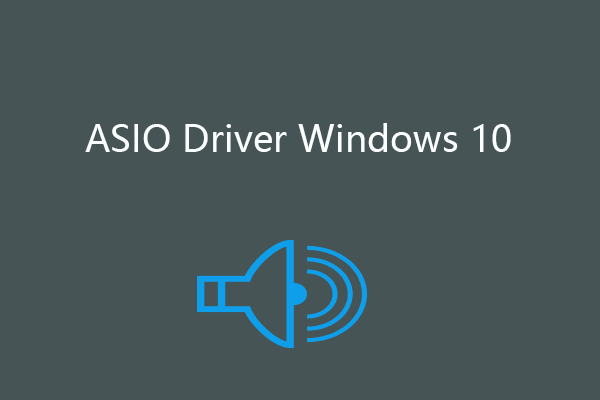

- #Realtek alc1150 asio install
- #Realtek alc1150 asio drivers
- #Realtek alc1150 asio update
- #Realtek alc1150 asio software
I'm also using Daniel Kawakami's latest improved Audigy drivers from here: ĮDIT: integration to just one post and typos lol.
#Realtek alc1150 asio update
Of course, if you want more and newer features and you are willing to spend more, then you are better off going with any card from the Sound Blaster Z series, or even better, with the new Sound BlasterX AE-5.īTW, I'm running Windows 10 Pro 64-bit with the latest Fall Creators update with no problem whatsoever on my Audigy 5/RX.
#Realtek alc1150 asio software
I like the hardware EAX of my card, unlike some other software emulatad alternatives from Asus, Realtek and even Creative themselves.Īnd it isn't that expensive either. Seriously, my Bose headphones have never sounded so good until I got the Audigy 5/RX.Īlso, thanks to Alchemy, I can use EAX on some old games I still play like Medieval II Total War, STALKER and The Witcher 1.
#Realtek alc1150 asio install
There's a DIR in the install package that has an installer for the ASIO driver. Alc1150 Asio Post by Trixie » Sat 11:26 pm hi re-installed my windows OS, all well except alc1150 asio dont seem to work - the only driver shown missing from the list - please help. So the Asio drivers don't install by default. I installed the latest drivers from the gigabyte/Aurus Elite drivers page. Even if you don't use or need ASIO, the sound is more natural, warmer and rich than with the integrated sound. Having trouble getting Realtek ASIO drivers to function. Then there is the impressive cristal clear sound when using its ASIO drivers. I used to have an original Audigy replaced then by an Audigy X-Fi Titanium Fatal1ty Pro that I regret selling so much.Ĭurrently, I have an Audigy 5/RX which has actual Creative hardware on it (unlike the FX version) and it is a world of a difference from the Realtek ALC1150 integrated sound codec that my motherboard has.įrom starters no more interference. It has no Creative hardware at all.įrom my experience, most sound cards from Creative sound way better than the integrated sound (not the Audigy FX, which has no Creative hardware). It's based on a Realtek codec + Creative software which ain't any better than the integrated sound in your motherboard. Information - Concerts, News,FAQs, Archives. SIGNED on SHA256 Realtek ASIO Drivers Included Link Here Optional: DisableProtectedAudioDG ANALOG AUDIO: Only Sound Blaster X-Fi MB5 DIGITAL AUDIO: Dolby Digital Live & DTS Interactive I hope you enjoy and enjoy it. There was some ASIO addon (needs to be installed separately from main driver) at some driver packages for ALC892, but it was never officially supported and it was pretty buggy, when I tried it just for my curiosity (at some older Windows 7 computer). Organs - Electronic (B3 etc.), Pipe, Theatre. Realtek HDA driver has no ASIO support out of box. Who's Who - Professional Pianists on Piano World Member Recordings - Non Classical Pianist CornerĮVENTS! Piano Concerts, Recitals, Competitions.įun Stuff! - Parties, Tours, Projects & More.įorum Members Parties, Tours, Cruises, & M. MY NEW PIANO or KEYBOARD! - Share Your Story! The good thing is ASIO4ALL works pretty well with Realtek chips.ĭigital Pianos - Electronic Pianos - Synths &a. Otherwise you'll need to use a generic ASIO4ALL driver. I don't see ASIO or latency addressed in either ASRock's or Realtek's online literature, but maybe there's an ASIO driver included in ASRock's driver.


(I don't know anything about SONAR X1 LE, but there's probably a setting in there somewhere where you point it at the sound driver you want it to use.) It looks like "Purity Sound" is some proprietary ASRock thing based on a Realtek ALC1150 chip. And if an ASIO driver is installed, you have to make sure your software is using ASIO and not some other installed driver particularly the native Windows DirectSound drivers, which are awful for latency. In Windows you have to be using an ASIO driver, no matter what the specs are for your computer or soundcard, or you'll have latency problems. Http:/ / en./ wiki/ Audio_Stream_Input/ Output It's a low-latency solution for exactly these kinds of problems. ASIO stands for Audio Stream Input/Output. That's why you need to do some extra work and that's where ASIO comes in. Toddy beat me to it, but here's my reply just so I don't waste all that typing:ĩ9.99% of the people who buy soundcards or motherboards with built-in sound aren't trying to play keyboards through them, so the latency problem simply isn't addressed.


 0 kommentar(er)
0 kommentar(er)
